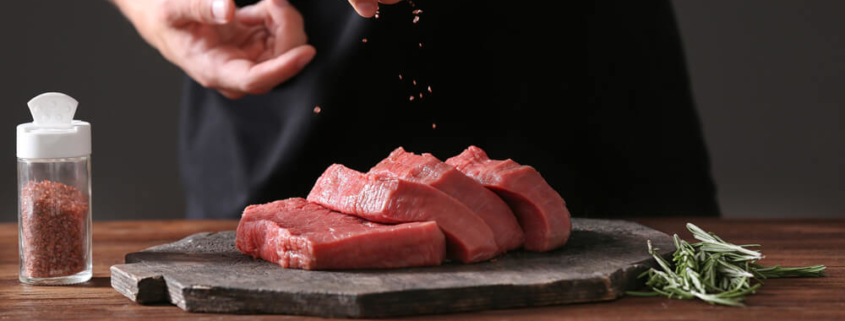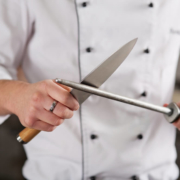Food Prep – How to Stay Safe When Handling Raw Meat
There is nothing more delicious than a juicy steak, a homecooked chicken, or a pork roast that you leave simmering in the crockpot all day. Meat is rich in protein, and many families include it as part of a balanced diet. But if you handle and cook meat at home, you need to exercise some caution to keep yourself and your loved ones safe.
The truth is that various types of bacteria can grow on animal products. Sure, there are safety concerns with just about everything you eat today. But understanding basic food prep with meat is vital. Here is what you need to know about the dangers of handling raw meat incorrectly and what you can do with your food prep to stay safe.
How Dangerous is Raw Meat?
Nothing about raw meat is safe. It can contain harmful bacteria such as Listeria, Salmonella, E. coli, and Campylobacter that can lead to food poisoning. When cooked correctly, those same bacteria are destroyed and are not a safety concern.
There is a common misconception that you are more likely to get sick from low-quality meat than you are from high-quality meat. If you fail to take the proper safety precautions, either can get you sick, which is why safe handling and proper food preparation are so essential.
Selecting Your Meat
Staying safe with meat begins at your local grocery store. First, never buy meat that is past its sell-by or expiration date. It is also a good practice to purchase your meat at a specialty store with a wide selection of meat choices or the same place you are buying your other groceries, so it reduces the time your food is out of the refrigerator.
Here are some other tips to help you select the best and safest meat:
- Avoid any meat that has a strong odor, is discolored or brown, or feels slimy or tough.
- Avoid any poultry that has a strong odor, looks faded, or feels slimy or tough.
- Avoid any fish that has a strong “fishy” smell or an ammonia-like odor, is discolored or faded, or has slimy or squishy flesh.
- Avoid any meat that is torn, damaged, or leaking packages since it is likely been exposed to harmful bacteria through the air.
Safe Handling of Meat
When you handle meat, always wash your hands first and continue to do so frequently. Use soap and water, washing your hands for a minimum of 20 seconds before and after handling meat.
The bacteria from meat can spread quickly and easily. To prevent this, separate your preparation area from your other food and cooking items. Be sure to keep vegetables separate from meat, particularly if you won’t be cooking them together.
If you have different types of raw meat that you are cooking, there is no problem if they touch each other as long as they are thoroughly cooked before consumption. The main concern is raw meat touching other foods, like a tomato, and transferring bacteria to those foods.
Always have a separate cutting board for meat. And clean all utensils separately once they have come into contact with raw meat. Use different utensils to serve your cooked food.
Cooking Your Meat Properly
We all have our preferences about cooking meat. Medium-rare to well-done is an age-old argument. But a big part of food safety is ensuring your meat is cooked all the way through.
Different meats have different minimum internal temperatures that are safe.
For example, the minimum cooking temperature for poultry is 165 degrees F and 145 degrees F for beef and pork. You can get a simple meat thermometer to gauge your progress.
How to Safely Store Meat
A big part of meat safety comes down to proper storage. In general, raw meat is safe to store in your refrigerator for about three days. If you plan to wait any longer before cooking it, the best thing to do is put it in the freezer. Frozen meat can last several months.
How you handle leftover meat after it has been cooked also matters. It may be tempting to take a few hours off to relax after all that food preparation, but it is safer to put your leftovers away as soon as possible after the meal. The less time your food sits at room temperature, the better.
Get Your Meat Questions Answered Quickly
Bacteria can grow quickly on bad meat, so it is never a good idea to take unnecessary chances. If you are ever in doubt about something you have in your home, it is best to err on the side of caution.
If you have questions about meat food prep, the highly trained butchers at Nick’s can help. We offer a full-service meat counter and take pride in superior customer satisfaction. We also provide a wide variety of some of the freshest meats at the most affordable prices.



 A Brief History of the American Cookout
A Brief History of the American Cookout


Leave a Reply
Want to join the discussion?Feel free to contribute!